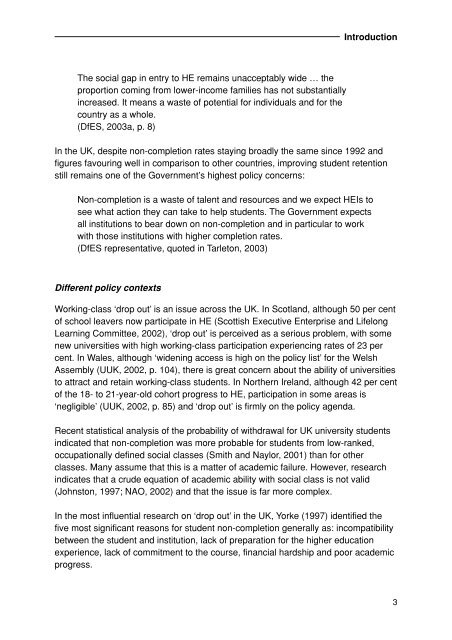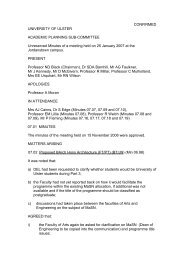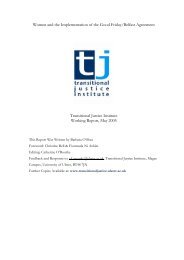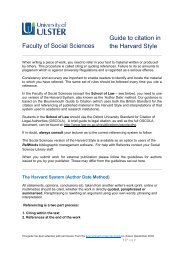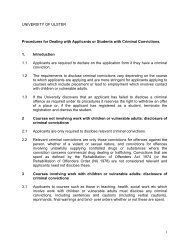From life crisis to lifelong learning: Rethinking working-class 'drop out'
From life crisis to lifelong learning: Rethinking working-class 'drop out'
From life crisis to lifelong learning: Rethinking working-class 'drop out'
Create successful ePaper yourself
Turn your PDF publications into a flip-book with our unique Google optimized e-Paper software.
The social gap in entry <strong>to</strong> HE remains unacceptably wide … the<br />
proportion coming from lower-income families has not substantially<br />
increased. It means a waste of potential for individuals and for the<br />
country as a whole.<br />
(DfES, 2003a, p. 8)<br />
Introduction<br />
In the UK, despite non-completion rates staying broadly the same since 1992 and<br />
figures favouring well in comparison <strong>to</strong> other countries, improving student retention<br />
still remains one of the Government’s highest policy concerns:<br />
Non-completion is a waste of talent and resources and we expect HEIs <strong>to</strong><br />
see what action they can take <strong>to</strong> help students. The Government expects<br />
all institutions <strong>to</strong> bear down on non-completion and in particular <strong>to</strong> work<br />
with those institutions with higher completion rates.<br />
(DfES representative, quoted in Tarle<strong>to</strong>n, 2003)<br />
Different policy contexts<br />
Working-<strong>class</strong> ‘drop out’ is an issue across the UK. In Scotland, although 50 per cent<br />
of school leavers now participate in HE (Scottish Executive Enterprise and Lifelong<br />
Learning Committee, 2002), ‘drop out’ is perceived as a serious problem, with some<br />
new universities with high <strong>working</strong>-<strong>class</strong> participation experiencing rates of 23 per<br />
cent. In Wales, although ‘widening access is high on the policy list’ for the Welsh<br />
Assembly (UUK, 2002, p. 104), there is great concern about the ability of universities<br />
<strong>to</strong> attract and retain <strong>working</strong>-<strong>class</strong> students. In Northern Ireland, although 42 per cent<br />
of the 18- <strong>to</strong> 21-year-old cohort progress <strong>to</strong> HE, participation in some areas is<br />
‘negligible’ (UUK, 2002, p. 85) and ‘drop out’ is firmly on the policy agenda.<br />
Recent statistical analysis of the probability of withdrawal for UK university students<br />
indicated that non-completion was more probable for students from low-ranked,<br />
occupationally defined social <strong>class</strong>es (Smith and Naylor, 2001) than for other<br />
<strong>class</strong>es. Many assume that this is a matter of academic failure. However, research<br />
indicates that a crude equation of academic ability with social <strong>class</strong> is not valid<br />
(Johns<strong>to</strong>n, 1997; NAO, 2002) and that the issue is far more complex.<br />
In the most influential research on ‘drop out’ in the UK, Yorke (1997) identified the<br />
five most significant reasons for student non-completion generally as: incompatibility<br />
between the student and institution, lack of preparation for the higher education<br />
experience, lack of commitment <strong>to</strong> the course, financial hardship and poor academic<br />
progress.<br />
3


